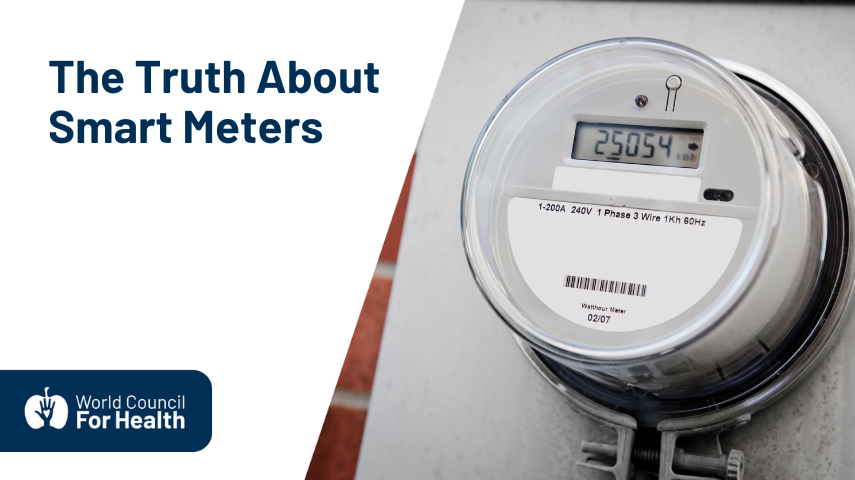What are Smart Meters?
Smart Meters are digital devices used by utility companies to measure electricity, gas, or water usage in homes and businesses.
Unlike conventional meters, which require manual readings, Smart Meters transmit usage data wirelessly through radio frequency signals to the utility company’s network. The data can be sent in near real-time, which allows for more accurate billing and the ability to track energy consumption patterns.
Understanding Radio Frequency Radiation (RFR)
Radio frequency radiation is a type of non-ionizing radiation that falls within the electromagnetic spectrum, which also includes visible light, microwaves, and infrared radiation. It is emitted by devices such as cell phones, Wi-Fi routers, and Smart Meters.
How often do Smart Meters Emit Radiation?
Initially, utility officials suggested that a Smart Meter transmission would only take place once every 4 hours, or so, but in many instances, it happens much more frequently than that – up to thousands of times a day.
What are the Health Risks?
The detrimental harms of Smart Meters are becoming more widely known. Smart Meters can emit dangerously high levels of Radio Frequency Radiation (RFR). There are hundreds of peer reviewed articles that link exposure to RFRs to sleep disorders, tinnitus, headaches, vomiting, neurological diseases, cancers and other known side effects. Smart Meters have also been shown to exacerbate house fires, making them more difficult to extinguish, as seen during the fires in Los Angeles. Most Smart Meters use radio-frequency electromagnetic radiation to communicate. In 2011 the World Health Organisation reclassified radio frequency electromagnetic radiation as a “possible carcinogen” (WHO-IARC Report May 2011).
What about privacy concerns?
Smart Meters are now being installed in every continent and in many countries. In most cases, consumers have not welcomed them. Privacy issues are a grave concern, as consumers’ security could be compromised. For example, Smart Meters are readily able to detect whether anyone is at home, or not. Do we really want this kind of information being broadcast all over the neighbourhood, even though it is encrypted?
Take Action
- Request a Non-Wireless (Analog) Meter – check with your local utility provider to find out if this option is available.
- Choose an Opt-Out Program Some utility companies may provide customers with the ability to opt out of Smart Meter installation or request that their Smart Meter be turned off after readings are taken. Push back against your energy provider or landlord if they attempt to bring in Smart Meters by sharing this information with them.
- Remove a Smart Meter from your home if you have one already fitted. A registered independent tradesman can do this.
- Minimize Proximity to the Smart Meter and turn it off when not in use
- Use EMF Shielding Products
More Information on Smart Meters
Smart meters and cell damage from pulsed em radiation – our health at risk?
How Dangerous Are Smart Meters?
Smart Meter Science – Andrew Marino
More Information on RFRs
5G and Electromagnetic Radiation








